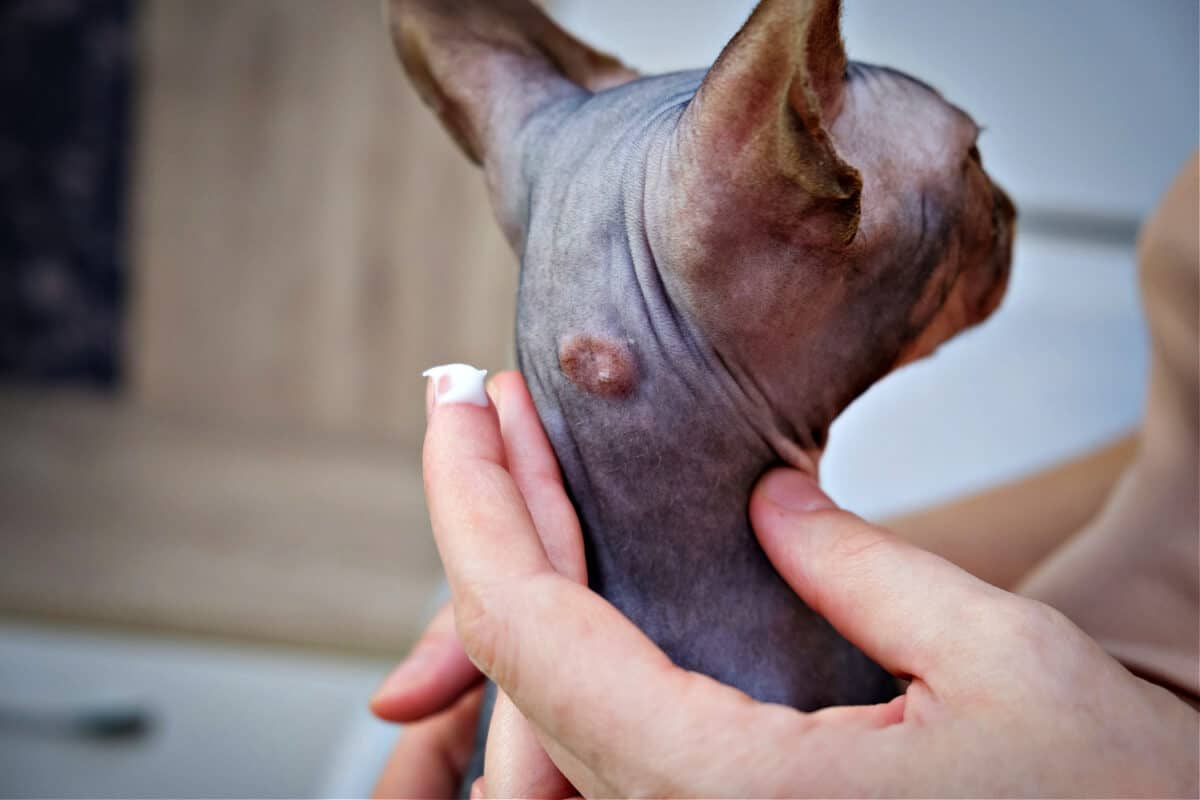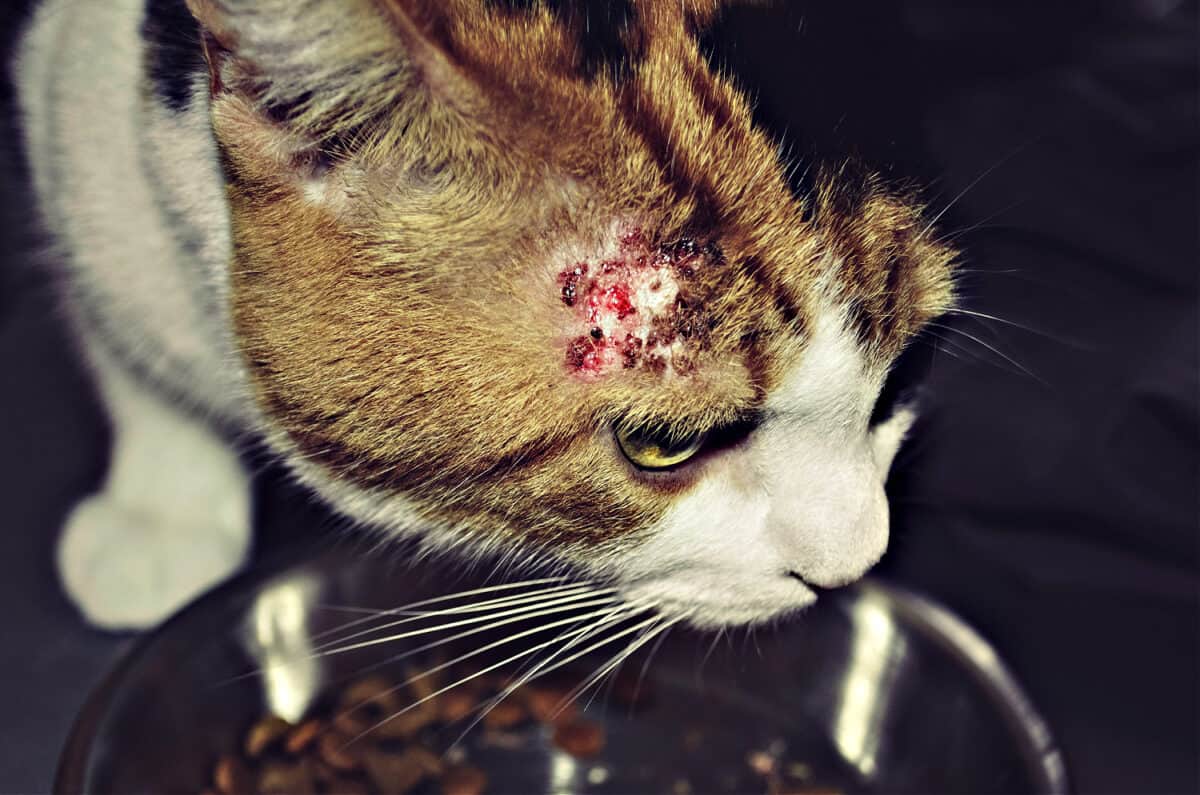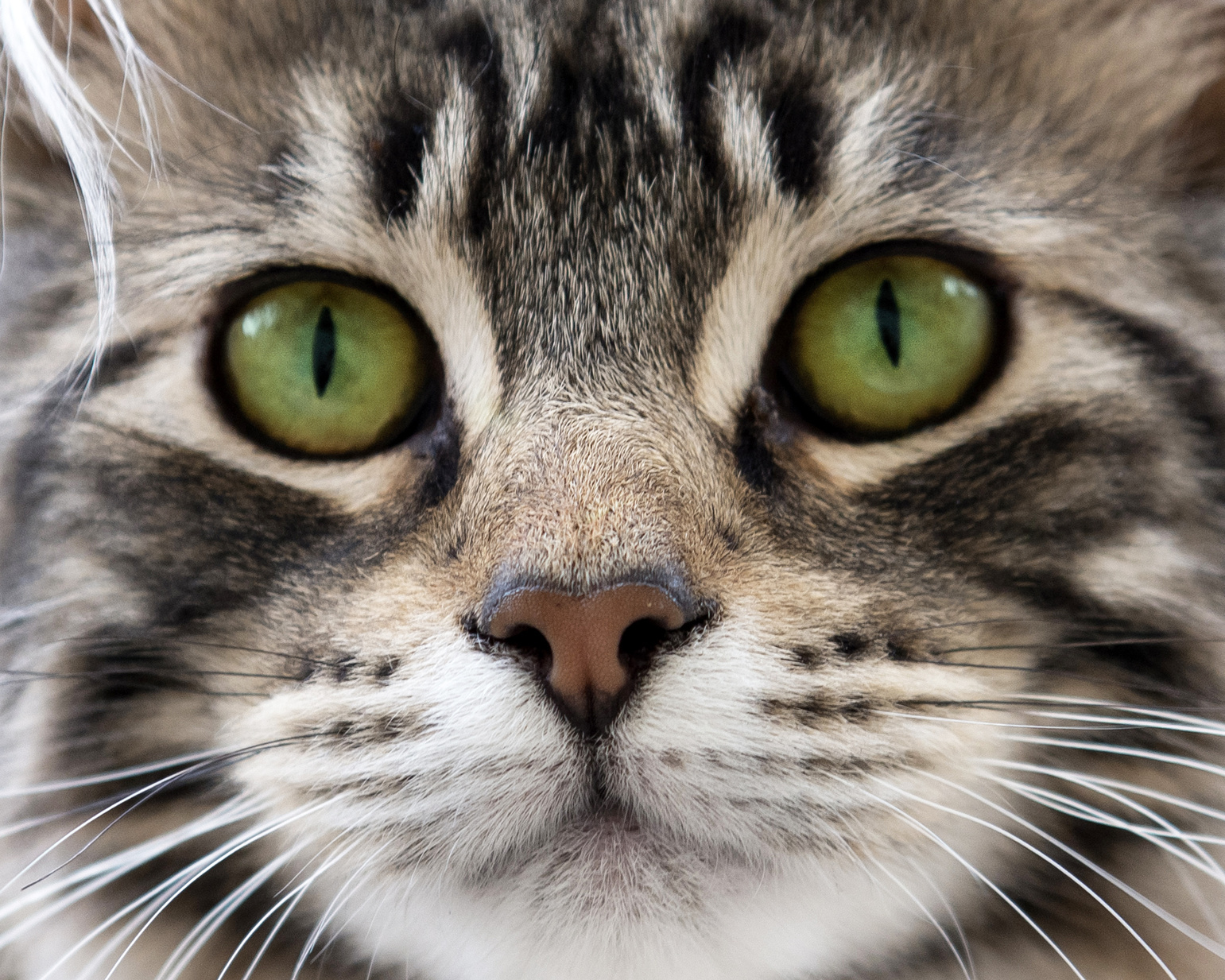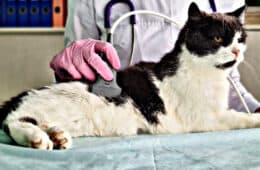"Skin conditions in cats" is a crucial topic every cat owner should understand. Recognizing that a cat's skin, like ours, is their largest organ underpins its significance in their overall health.
The role of a cat's skin stretches beyond its furry appeal. It acts as a protective barrier against harmful elements, regulates body temperature, and can signal health issues lurking beneath the surface.
In this comprehensive guide, we cover skin conditions in cats, their symptoms, causes, and practical remedies.
Expect to understand how your cat's behavior can give away skin-related problems. Discover common skin issues like ringworm, fleas, mites, and allergies.
Learn to identify symptoms like excessive grooming, biting the skin, or open sores. Beyond identifying these issues, this article equips you with knowledge on how to tackle them and keep your cat's skin healthy.
Remember, your role is not to replace professional veterinary advice but to identify potential issues and seek timely help.
Armed with this knowledge, you'll be better prepared to care for your cat and ensure they're as comfortable and happy as possible. Let's begin!

Symptoms of Skin Conditions in Cats
A cat's skin can display a variety of symptoms and then there are skin-related behaviors such as biting the skin or scratching.
Skin-related symptoms can indicate a skin problem but they can also indicate a more systemic issue. Skin symptoms include:
Habitual Scratching
The sight of a cat scratching itself might seem natural. Yet, constant scratching can signify a skin problem.
Hair-Pulling Episodes
When you spot your cat pulling out its hair, it's time to consider potential skin issues. This behavior might indicate an itch or discomfort.
Frequent Skin Biting
Biting at the skin isn't just a playful act. It can be a cat's way of dealing with an itch or irritation.
Intensive Grooming Routines
Cats are known for their grooming habits. However, excessive grooming could mean more than just cleanliness.
Visible Skin Changes
Cats communicate their health through their skin. As an owner, you should look out for visible skin changes. These changes might signal underlying issues that aren't immediately apparent.
Redness and Swelling
Red or swollen areas on your cat's skin can indicate a local irritation or systemic condition.
Rashes
If you find a rash on your cat's skin, it's time to pay attention. Rashes are not normal and require further investigation.
Lumps and Discolorations
Lumps, bumps, or discolorations on your cat's skin need attention. They can be early signs of skin disease or infection.
Open Sores
Open sores on your cat's skin should never be ignored. They can indicate a more severe skin condition that requires immediate care.
Dry and Flaky Skin
Dry, flaky skin or rough patches can be signs of dermatitis or other skin problems.
The signs are there, and it's our responsibility to notice them. Careful observation of your cat's skin and behavior can lead to early detection of potential issues.
SIGN UP FOR THECATSITE'S EMAIL UPDATES >

Potential Causes of Common Skin Issues in Cats
Several factors can cause skin issues in cats. Let's discuss the usual suspects that could be affecting your furry friend's skin health.
The Culprit: Ringworm
Dry, red, scaly patches of skin, coupled with hair loss, are often signs of a ringworm infection. This fungal menace doesn't limit its victims to other pets; it can also infect humans.
Therefore, it's crucial to visit the vet if your cat displays these symptoms. The red spots may be hard to see, so if your cat persists in scratching, it's time for a vet visit.
Read more about Ringworm In Cats
Trouble Maker: Cat Fleas
Either you’ll see the fleas when you part Kitty’s hair (easiest to see on the stomach and in the armpits) or you’ll see little black specks.
Dampen them and if they turn a rusty red, it’s flea dirt. The redness is from Kitty’s blood that the flea has ingested. You’ll need to treat all areas Kitty’s been to avoid an infestation.
The Nuisance: Skin and Ear Mites
Most common are ear mites which will cause head shaking and scratching around the ears and on the head in general. An ear infection and ear mites call for two different salves.
A trip to the vet to get the proper medication will be necessary either way. If you wait for too long, there is likely to be some fur loss on the outer ear and the sides of the head, due to excessive scratching.
Skin mites are called Cheyletiella mites. They cause a skin infection commonly known as mange, often manifested in scaly patches on the skin and dandruff.
This parasitic infection of the skin needs to be treated ASAP, as it's not only extremely uncomfortable but also very contagious.
Tricky Allergens: Skin and Food Allergies
Cats, like humans, can be allergic to various things - from mold, tree pollen, or grass. Changes in seasons, blooming flowers, or cut grass can trigger these allergies.
Even allergens carried inside on your clothes and shoes can cause skin irritations in cats.
Have you used wipes on Kitty’s fur or any kind of shampoo or grooming products? These can all irritate a cat's gentle skin.
Only use products that were formulated specifically for cats, and if need be, switch to cat-formulated hypoallergenic products.
It’s not just Kitty’s immediate world that can cause problems.
If you changed fabric softeners, and detergents, or bought new pillows, sheets, or rugs, Kitty may be reacting to the fibers or added chemicals used to make them stain-proof or wrinkle-resistant.
Food allergies can also be expressed in the form of skin irritation, scratching, and bald patches.
Any protein in the cat's food can trigger an allergy and no one knows why some cats develop the food allergies they have.
Common allergens are chicken, beef, or types of grain. Your vet needs to rule out other causes for irritated skin and work with you on food elimination trials to find the type of food Kitty is allergic to.
Hidden Danger: General Infections
While healthy cats rarely develop skin infections, older, sick, or very young cats can be susceptible to bacterial, viral, or parasitic infections.
Cats with wrinkly skin, like the Sphinx or Rex, can develop yeast infections in skin folds. The yeast infection will need treatment, followed by regular cleaning to keep the issue at bay.
Skin health is integral to your cat's overall well-being. Being aware of potential causes of skin conditions helps in timely detection and intervention, ensuring your furry friend stays healthy and happy.

Stress-Related Skin Problems in Cats
Cats dealing with stress may exhibit behaviors like hair pulling, licking, and scratching, sometimes to the extent of breaking their skin or creating bald spots.
The key to restoring skin health is to alleviate the underlying stress.
Read more about stress in cats and how to deal with it.
Proactive Steps For Preventing Skin Allergies And Disorders
Some cats have a greater propensity to develop rashes and skin conditions, often due to allergies, stress, or a combination of both. Here are practical steps to safeguard such cats:
Keep a Clean Environment
Frequent vacuuming and immediate disposal of the vacuum bag can be your first line of defense. This routine minimizes the risk of fleas that may hitch a ride on your clothes or other pets and reduces dust and mite presence.
Regular Brushing
A habit of brushing your cat regularly not only keeps their coat in top shape but also lets you spot any skin changes as they occur. Moreover, it can prevent hair mats.
Maintain a Healthy Diet
Ensure your cat consumes healthy, nutrient-rich food. Avoid feed with colorings, fillers, or grain listed in the ingredients.
Foster a Calm Environment
Catering to your cat's emotional needs also goes a long way in maintaining their skin health.
Enrich your cat's environment with climbing and jumping areas, scratching posts, hiding spots, and a comfy bed.
Engaging toys and human interaction make your cat's life, and consequently yours, better.
Regularly checking your cat's fur, skin, eyes, ears, and teeth helps detect any changes early.
Timely veterinarian visits can prevent the problem from worsening. Once diagnosed, topical medications can typically resolve the skin issue.
It's crucial not to attempt home treatments without consulting a vet as it may lead to further complications. Your pet's health deserves expert care.
Wrapping Up: Cat Skin Health Matters
We've explored various symptoms and causes of skin conditions in cats, from allergies to infections and stress-related problems.
We've seen that proactive measures can make a big difference. Regular grooming, a balanced diet, and a stress-free environment can help prevent skin issues.
However, don't ignore any changes in your cat's skin or behavior. Early detection and consultation with a vet can be critical. So, let's prioritize our cat's skin health today – they're counting on us!
SIGN UP FOR THECATSITE'S EMAIL UPDATES >
Comments? Leave them using the form below. Questions? Please use the cat forums for those! And if you found this article useful please help us in spreading the word about good cat care and share it on Facebook and Twitter.
Note: We may get commissions for purchases made through links on this page.




14 comments on “Skin Conditions In Cats – An Essential Guide”